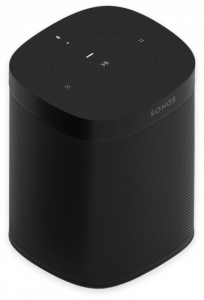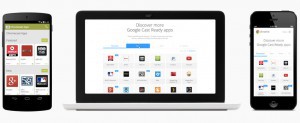 Following the conclusion of a long-standing legal battle, Sonos has emerged victorious to block the import into the US of Google’s smart speaker devices and other home tech products. Notwithstanding this defeat, Google has no intention of withdrawing its affected products, so who is the real winner in this dispute?
Following the conclusion of a long-standing legal battle, Sonos has emerged victorious to block the import into the US of Google’s smart speaker devices and other home tech products. Notwithstanding this defeat, Google has no intention of withdrawing its affected products, so who is the real winner in this dispute?
The decision by the US International Trade Commission (ITC) earlier this month follows a lengthy legal dispute, which began in 2020. Sonos alleged that Google’s smart speaker devices infringed five of its US patents, and after considering the evidence, the ITC has agreed and blocked their importation.
While the decision is obviously bad news for Google, it may not be as damaging as it sounds from a commercial perspective. The case has taken almost two years to consider, and during this time Google’s software developers have been able to find ‘workarounds’ to circumvent the ITC’s ultimate ruling. By implementing these software changes quickly and informing customers about how the functionality of their devices will be affected, Google is hoping to continue to service the US marketplace much as it did before.
From a customer relations perspective however, the impact of the ITC’s decision could turn out to be more damaging for Google. The patents infringed by the company relate to some popular features, such as the Google Assistant and group volume control, which allows the output volume of a group of smart speakers to be adjusted simultaneously over a local area network. News of the software changes has generated a negative market reaction, with many customers complaining that their products have been degraded and others asking for their money back.
Depending on how customer sentiment develops, Google may wish to consider its options. For example, Google could decide to offer its rival a fair royalty payment, so it can continue to use the patented technologies that it had misappropriated, although Sonos is not bound to accept this proposal. Alternatively, with some of the patents owned by Sonos now nearing the end of their 20-year lifespan, Google may prefer to sit things out and wait for the relevant features to become available for all to use freely once the patents expire.
Whatever happens next, the legal battle between Google and Sonos is far from over in the US. In separate proceedings Google is suing Sonos for patent infringement through the district court system, and the latter has a further patent action pending. If both companies end up securing victories in the courts, their best option may be establish a cross-licensing agreement and settle their differences in that way.
While Sonos currently holds the upper hand in terms of patent rights, this case has served to highlight how competitive the smart speaker and home automation markets have become. With an ageing patent portfolio, Sonos will need to look to the future by continuing to focus on innovation in order to retain its market-leading position and not be squeezed out its increasingly dominant rivals.
Sonos may have won this particular legal battle, but the time taken to resolve the matter could yet play out in Google’s favour, as the patented technologies at the heart of the case could soon be fair game for all.
Image: Sonos One smart speaker
Author
 Michael Jaeger is a partner and patent attorney at European intellectual property firm, Withers & Rogers. He specialises in advising electronics and consumer tech companies about protecting their innovations.
Michael Jaeger is a partner and patent attorney at European intellectual property firm, Withers & Rogers. He specialises in advising electronics and consumer tech companies about protecting their innovations.
 Electronics Weekly Electronics Design & Components Tech News
Electronics Weekly Electronics Design & Components Tech News



